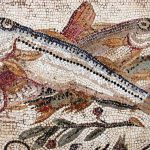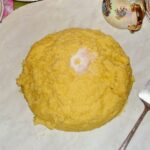Chapters
Antiquity is associated primarily with great philosophers, warriors and architecture, but one of the most interesting aspects of ancient life is culinary art. Among the preserved works of ancient Rome, a special place is held by “On the Subject of Cooking” (De re coquinaria) by Apicius, considered one of the first gastronomes in history.
Apicius – who was he?
The Apicius in question is quite a mysterious figure. He probably lived in the 1st century CE, probably during the reign of Emperor Tiberius (14-37 CE). How do we know that the author of the work is a person named Apicius? This theory emerged because the two surviving manuscripts of the work are preceded by the inscription “API CAE”. Scientists identify Apicius with the unknown Caelius Apicius or Marcus Gavius Apicius, who was a Roman connoisseur of good taste in the 1st century CE.
If we assume that Marcus Gavius Apicius is the author of the work, it is worth writing a few words about this character. He was famous for his hedonistic approach to life and refined taste. Among the Romans, he was known as a lover of luxurious cuisine, and his name became synonymous with culinary excesses and extravagance.
Although it is difficult to attribute authorship to the entire work, “De re coquinaria” is certainly the first known cookbook.
“De re coquinaria” – what can we find in the work?
“De re coquinaria” is a collection of recipes that shed light on Roman cuisine and the everyday life of the aristocracy of the time. It consists of ten books that cover a variety of culinary topics – from recipes for sauces, bread, meat, and fish, to dishes with exotic ingredients, such as flamingos or wild animals. There you will also find tips on preserving food, seasoning dishes and suggestions on serving meals.
It is worth paying attention to the variety of ingredients – many of them were very expensive, e.g. pepper, exotic fruits, honey and expensive wines. Roman cuisine was full of intense flavours, and the culinary art itself was considered a real art, the aim of which was not only to satisfy hunger but also to induce pleasure.
Sophistication and luxury on a plate
Apicius’s work reflects the Romans’ unique taste for sumptuous feasts and refined tastes. This cuisine was full of various cooking techniques, such as baking, stewing and grilling, as well as flavour combinations unknown today, such as meat seasoned with honey and pepper or fruit served with wine.
Many historians emphasize that “De re coquinaria” also shows how Roman cuisine was open to the influence of other cultures, especially Greek and Eastern ones. It was from these regions that spices, oils, wines and other luxury products were imported, which made Apicius’s cuisine so diverse.
Influence on modern cuisine
Although some of Apicius’ recipes may seem exotic or even strange today, many of them had a major impact on the development of European culinary art. Apicius focused on refined compositions of flavours and techniques that have survived centuries, transforming into what we today call haute cuisine.
“On the Subject of Cooking” remains one of the most important sources of knowledge about the cuisine of ancient Rome, and its recipes still inspire chefs around the world who are looking for new ideas and ways to combine modern techniques with tradition.






